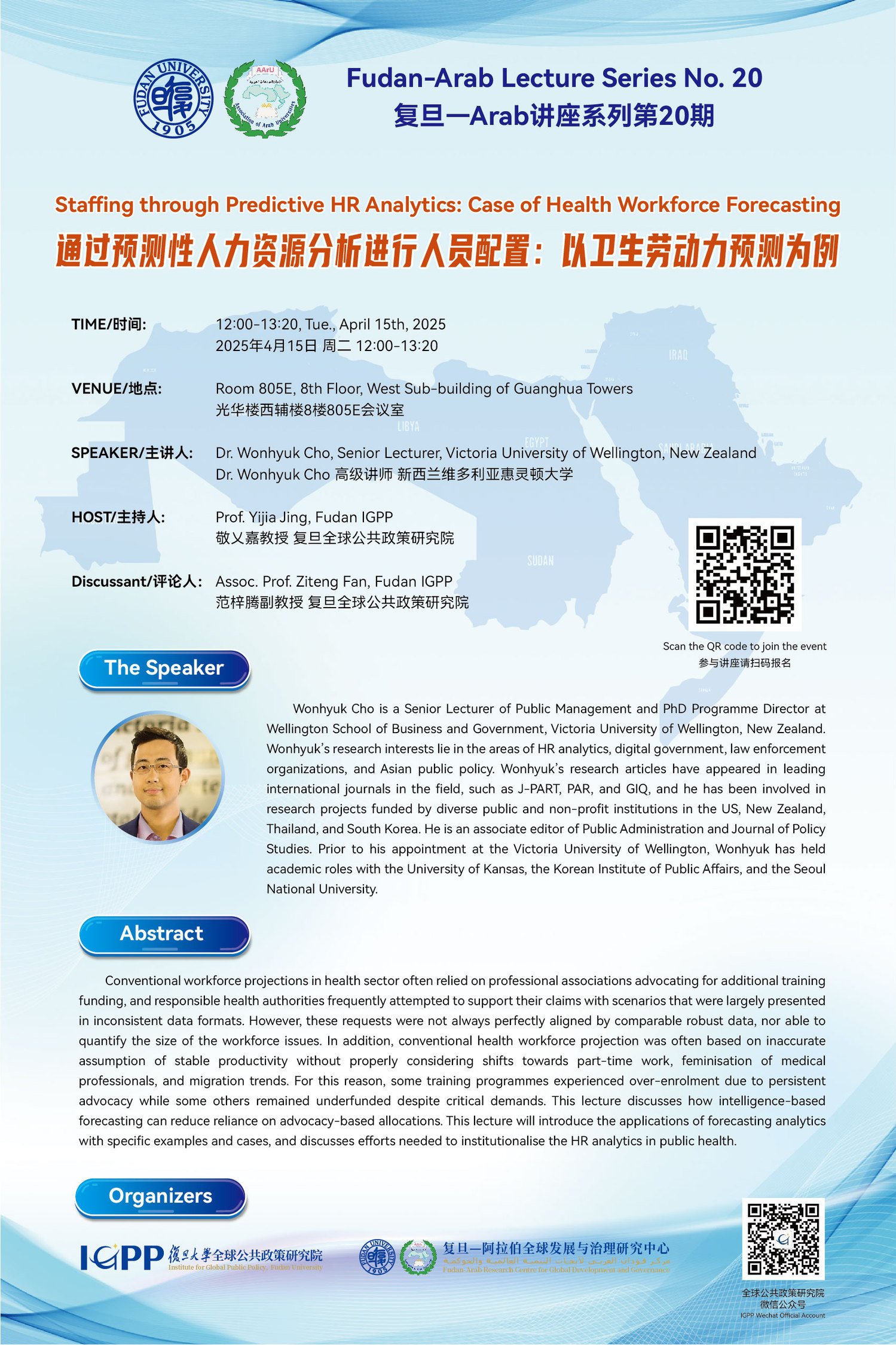
Fudan-Arab Lecture Series No.20
Title:
Staffing through Predictive HR Analytics: Case of Health Workforce Forecasting
Speaker:
Dr. Wonhyuk Cho, Senior Lecturer, Victoria University of Wellington, New Zealand
Host:
Prof. Yijia Jing, Fudan IGPP
Discussant:
Assoc. Prof. Ziteng Fan, Fudan IGPP
Time:
12:00-13:20, Tue., April 15th, 2025
Venue:
Room 805E, 8th Floor, West Sub-building of Guanghua Towers
https://www.wjx.cn/vm/Olb46X5.aspx#

The Speaker:

Wonhyuk Cho is a Senior Lecturer of Public Management and PhD Programme Director at Wellington School of Business and Government, Victoria University of Wellington, New Zealand. Wonhyuk’s research interests lie in the areas of HR analytics, digital government, law enforcement organizations, and Asian public policy. Wonhyuk’s research articles have appeared in leading international journals in the field, such as J-PART, PAR, and GIQ, and he has been involved in research projects funded by diverse public and non-profit institutions in the US, New Zealand, Thailand, and South Korea. He is an associate editor of Public Administration and Journal of Policy Studies. Prior to his appointment at the Victoria University of Wellington, Wonhyuk has held academic roles with the University of Kansas, the Korean Institute of Public Affairs, and the Seoul National University.
Conventional workforce projections in health sector often relied on professional associations advocating for additional training funding, and responsible health authorities frequently attempted to support their claims with scenarios that were largely presented in inconsistent data formats. However, these requests were not always perfectly aligned by comparable robust data, nor able to quantify the size of the workforce issues. In addition, conventional health workforce projection was often based on inaccurate assumption of stable productivity without properly considering shifts towards part-time work, feminisation of medical professionals, and migration trends. For this reason, some training programmes experienced over-enrolment due to persistent advocacy while some others remained underfunded despite critical demands. This lecture discusses how intelligence-based forecasting can reduce reliance on advocacy-based allocations. This lecture will introduce the applications of forecasting analytics with specific examples and cases, and discusses efforts needed to institutionalise the HR analytics in public health.





